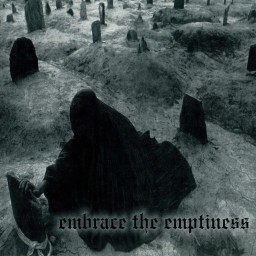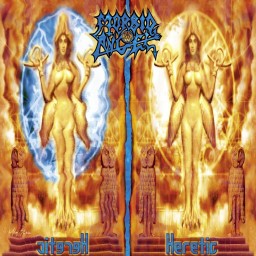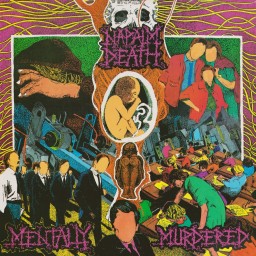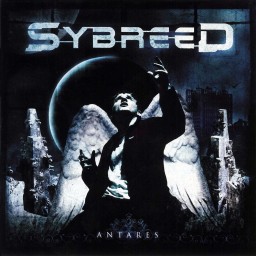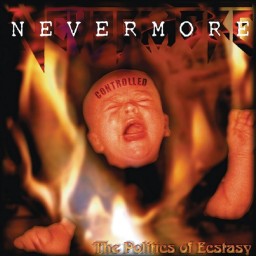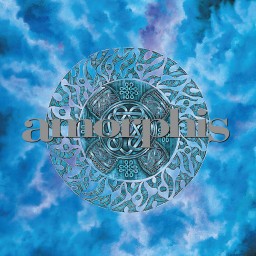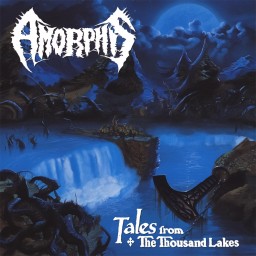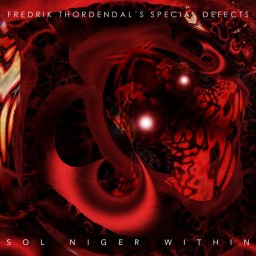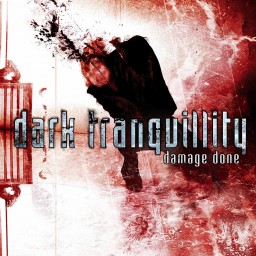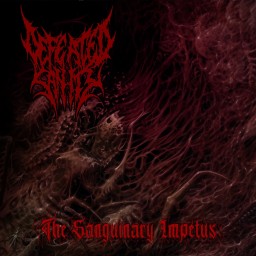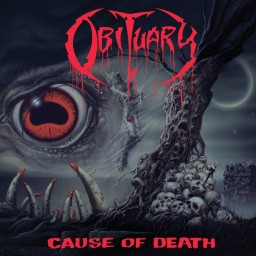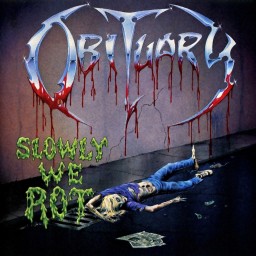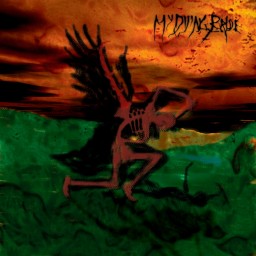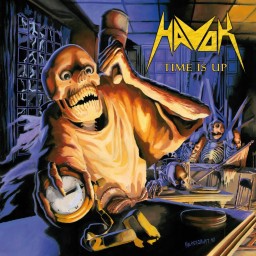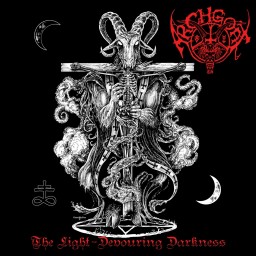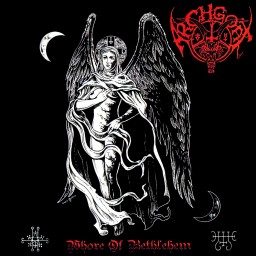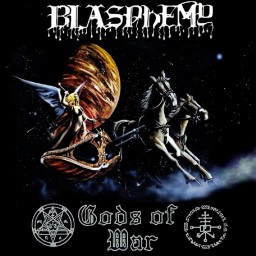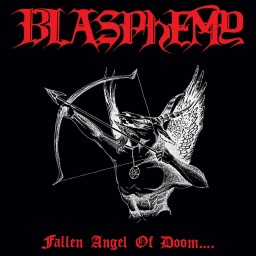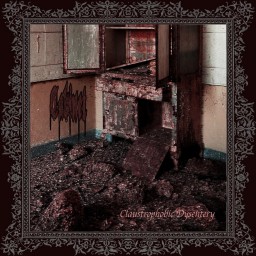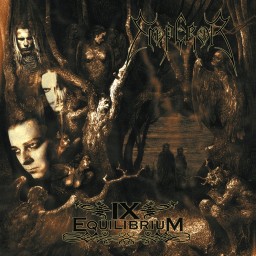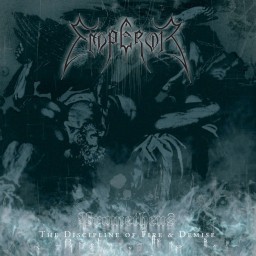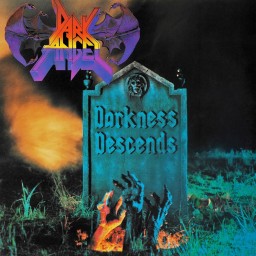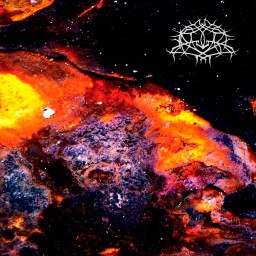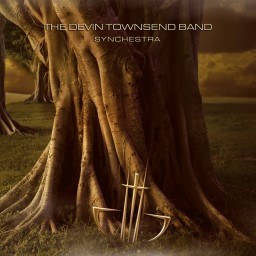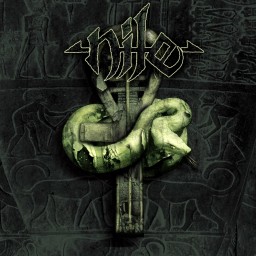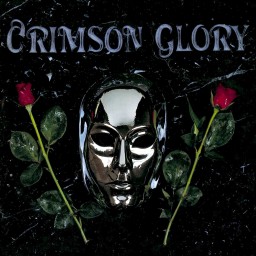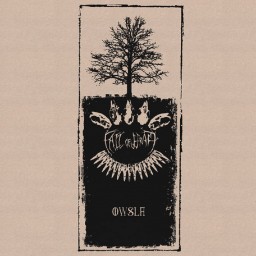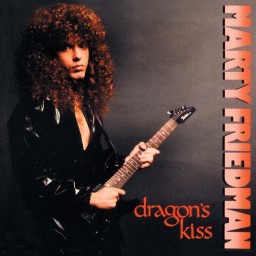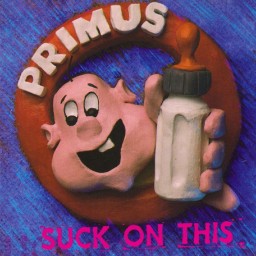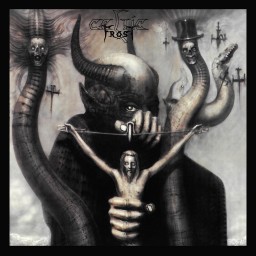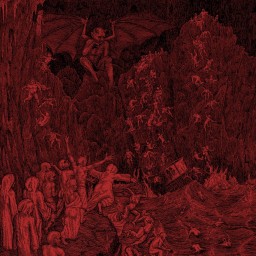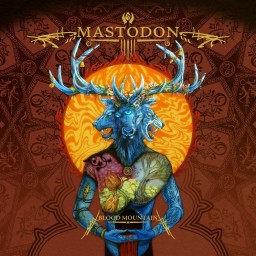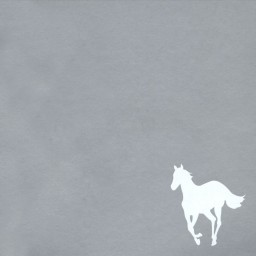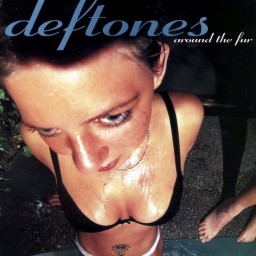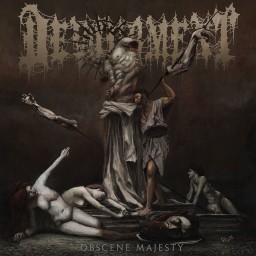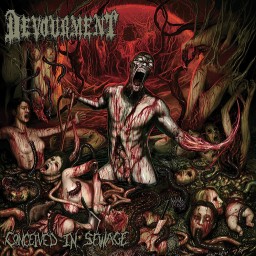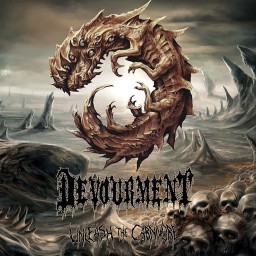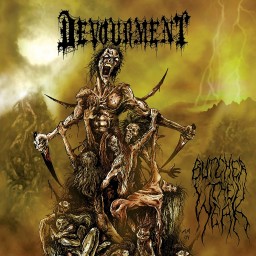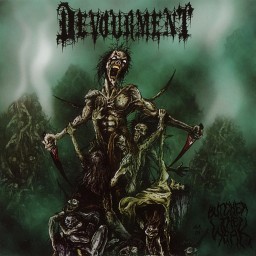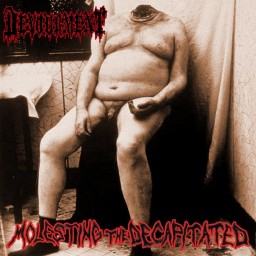Rexorcist's Reviews
Evoken seems to be considered as essential to funeral doom metal as Esoteric. They're one of those bands that many say has never made a bad album. The debut left an impact on the metal world for helping to cement a darker side of funeral by combining it with the death doom of bands like My Dying Bride and Katatonia. So when you combine the two, I would expect the result to be something even darker than the norm. But for a debut, how well could it go the first time?
From front to back, atmosphere was their strongest point, and in the context of the funeral sound, that's exactly what they needed. This careful balance between the sombre classical sound of funeral death and that malevolent sense of fear and anger that death doom is known for is carefully handled. One of the biggest pros of the album is the variety of vocals, going from low growls to despairing cries to black metal pitches. So we get the a very healthy doom experience that covers a lot of ground for the fans of the sombre world of doom, and not the psychedelic Sabbath lovers. The guitar tone has a fairly gothic touch to it to bring out more of the funereal vibes Of course, this is a funeral doom metal album. There's a general flaw that's apparent in so much doom metal, especially the funeral brand: the length and sameyness of the songs. A couple of these would be five-star songs if I couldn't tell what was gonna happen next.
For a debut it was nice. The atmosphere was more than what I asked for and much more impressive than what a debut album generally says about the act. But as far as structuring a song goes, these guys are pretty standard. They got the mood just right and left the idea of variety and uniqueness out the window, but at least they nailed what they focused on.
Genres: Doom Metal
Format: Album
Year: 1998
While putting together my recent Top 100 Death Metal Albums chart (ending with all 100 albums ranked 9/10 or higher on my chart), I was getting through an album that a few people here on Metal Academy loved: Altars of Madness by Morbid Angel. I liked it so much that I decided to listen to most of their first six albums not once but twice. This really helped me evolve my death metal standards, and can now safely say that my current pick for the number one death metal band for ALL the right reasons is Morbid Angel. Reasons include: having a better debut than Death themselves, a more surreal willingness to evolve, heavier and darker music, no lightening their heaviness later on and two incredible vocalists with their own classic eras. The first six are all death essentials, and I even gave two of their albums perfect ratings. After the glory that was Gateways to Annihilation, their slowest but doomiest and possibly most soul-crushing and psychedelic effort, I was hoping I would once again be going against the metal grain and enjoy Heretic, the first of their albums that is considered unnecessary.
Well, I gotta say it. For the most part, their heaviness didn't wane from their previous effort. Morbid Angel went back to death metal roots with this one, and because of that, there's practically no willingness to evolve. This means that the album is largely made up of standard pounding death. The album doesn't do anything freaky or surreal until Place of Many Deaths, which is seven songs totaling up to 25 minutes in. Only then does it go into weird, freaky and creepy background ambiance akin to Blut Aus Nord's The Work Which Transforms God. Lemme tell you, it was a major breath of fresh air to get away from another mid-to-low-tuned flat-ass pounder with only a couple decent riffs to make it fairly enjoyable. But deep down I knew that the chances of this continuing through the album were minimal, but not impossible. Turns out, that minimal chance had a breath left for the two-minute ambient track, "Abyssous." But as soon as that was done, we went right back to what the band was playing for the first six tracks. Thankfully, it gets pretty unexpected out wild in the last few shorter tracks, but it would've helped the album if these shorter, weirder bits were more scattered around the album instead of lumped at the end. Putting some of these unpredictable and shorter bits in with a bunch of silent pauses on,y made it less charming. They should've been segues.
So in their efforts to remain a relevant death band, they put to much focus on the weirder bits and not enough on the actual point of their career: death metal. So Heretic shows the band just putting out generic death metal and sticking weirder tracks on for the heck of it without organizing things or making the death metal rock. It's raw heaviness brought down by riffs of either middling or decent quality and an unfocused teeter between laziness and ambition. The long and short of it is simple. The staggering potential of this album by evolution revolutionaries is both untamed and untapped.
Genres: Death Metal
Format: Album
Year: 2003
The Napalm Death legacy is a weird one in which people are constantly battling over which ND albums are the best because of the various sounds they've covered in different eras, save the experimental scene in which they produced subpar albums during the early 90's. The 1980's and the 21st century are totally different stories where most of the wars take place. Me, personally, can't stand the fact that it took Napalm Death more than 30 years to create an album up to my standard of fine making: Throes of Joy in the Jaws of Defeatism. This album has death, blackened crust, metalcore, industrial and more. The problem with ND albums is that they make 40-fifty minutes of the same song on each album, usually. And it gets on my nerves.
This EP doesn't have any of that stuff to worry about. This is the kind of album a deathgrind album should be, not close to an hour but short and powerful. I admit, I might've liked it to be a little longer, but thanks to the 2.5 minute average of these six songs on this EP, none of the ideas overstay their welcome. It must also be said that the production of this album is noisy and dirty, which brings out the most of the punk attitude and the metallic vibes. This helps make this one of their heaviest releases. I love the fact that the percussion is so powerful on this album. I mean, on Harmony Corruption, they were so weak I wanted to puke. And people actually like that album. I guess if I had to pick a favorite track, it would be Walls of Confinement. It displays everything the albums about, fast, mid-paced, violent, hardcore and metallic.
Sometimes, all you really need is a short burst of heaviness to keep you going. You draw that out for too long and it loses its effect. I mean, why not? So many punk genres along with their metal mutants build themselves on the EP instead of the album. This is more than welcome to me. It's got the brutality of Suffocation's Human Waste, although it could have slightly better production as it drowns in its own noise sometimes. But 90% of the time it's very clear what's going on. And even if it gets noisy, that's when it becomes one of the heaviest releases in either punk or metal. A lot of lengthy ND studio albums could take a few cues from this EP. I mean, yeah, there isn't a lot of differentiation between tracks... but this is only fifteen minutes. And honestly, I'd scold myself for being so obsessive over fifteen minutes. After hearing so many samey deathgrind albums, the variety-cultist in me wants more, but the critic in me won't allow that to be considered a con.
Genres: Death Metal Grindcore
Format: EP
Year: 1989
One day, and industrial band said, "let's put a better scifi twist on it" and created cyber metal, a niche genre that no one has really made a pure artform yet, and way? Because it has a tendency to be very trope riddled. But the appeal of the genre is obvious: cyber metal is all about the scifi, and one of the best bands to recreate that "cyberpunk" feel is Sybreed. It shines at full force on Antares, no star pun intended.
The album recreates scifi vibes beautifully. It's like all at once I'm being dragged out into space, experimented on in a lab or having to deal with dystopian problems in a cyberpunk world. The drama is there, but never played up too much. We have plenty of room for serene and melodic moments to just drag you away into "a sea of nothingness." Sometimes the atmosphere is Floydian. As for my favorite aspect of this album, I'd say it's Nominet's melodic vocals. His high and youthful pitch is just robotic enough for the cyber sound but powerful in its softness. The guy also has some decent metalcore growls, occasionally going into Wayne Static territory, which is pleasing to me considering that Wayne's voice was the best part of Static-X.
Unfortunately, the same problem that takes over the vast majority of cyber metal (I've started many albums but haven't finished them because of this) is that all the songs are pretty much covering every layer of influence at one. There's cyber, pure industrial, groove, djent, electronic and death here, but most of these songs are made up of multiple sections each covering one or two of these genres at once, so originality becomes repetitive. There's a little differentiation between songs sometimes, like the shift from atmospheric serenity in isolate to the raspy djent of Dynamic. But otherwise, the reliance on shifting the same genres becomes tiring by the end, despite the melodies and atmos still being good.
Although cyber metal is a genre yet to be mastered and perfected, the fans of this niche genre will still have Sybreed and Antares. This has very heavy feeling to it, which is the most powerful aspect of the album and the standout as well. If you want metal that will put you right into a scifi world, I can't think of a better album.
Genres: Industrial Metal
Format: Album
Year: 2007
Nevermore are known for having a diverse range which can potentially attract a lot of different metal fans: heavy, prog, thrash, power, speed, etc. Basically, they've made for themselves a style which stays honorable to a large sect of the metal world. But does this mean that they always write the best songs for any one of these genres? They're considered an essential band in 90's and 2000's metal, so let's see where this takes me.
Nevermore's "The Politics of Ecstacy" sees them expanding on the style they created with their self-titled debut, but with a stronger progressive edge. This is one of those challenging albums where predictability of the structures and riffs themselves is largely absent. Thanks to this and their very metallic sound, they live up to the multiple areas they've included in their personal style at the time, which often relies on all of the major components playing at the same time. Coupled with the singer's strong and loud vocals, this is a very energetic album, even during the slower compositions. The rest of the components pairing with prog also makes this a very accessible prog album, which isn't necessarily bad. However, while these songs are all cool and easy to get behind, the actual riffs aren't the most imaginative. We have fun rhythms throughout the whole album, but not a single one of them amazed me, and I didn't give any five stars to any of the tracks.
This is an easy band to enjoy thanks to their range and power, but they aren't the most amazing group of writers out there, or at least they weren't at the time of this album's release. The strong points, however, greatly outweigh the album's weakness, so I would easily find myself recommending this band to anyone looking to get into more metal, especially if you're already a Dream Theater fan.
Genres: Heavy Metal Progressive Metal Thrash Metal
Format: Album
Year: 1996
Immediately after the highly melodic, beautifully different but not-so-heavy Tales from the Thousand Lakes, Amorphis realized that for them to stand out, they needed to be different. This time, they expanded on their sound and took on a few different directions. Their finally truly death album, Elegy, would see them becoming the prog metal band they're known for being, and of course this would set the band up as one of the essentials of that genre. This is the finally truly death metal album we got, and even then it bridges the boundaries very bravely, so be prepared.
With Tales, Amorphis took a folksy route, capturing some old mythical vibes in the format of a death metal album. Like that album, however, this band needs a little work in the heaviness department, as the drumming feels very weak and the lighthearted melodies overpower the extremity. Unlike the last album, however, this takes folk influence to a much more surreal level, going into Arabic territory to create both desert vibes and adventurous cinematic touches. Some of these psychedelic solos are very cool, and because of the Arabic vibes the folk metal influences bring in, they feel perfectly natural, adding to the unique behavior of this album. We'll even have touches of prog electronic mingled in with our psychedelic solos on the third track, The Orphan. Never would've seen a death metal act take a couple notes from Tangerine Dream, would you? And thankfully, we do have a couple of heavier songs mixed in with this incredibly diverse bag of tricks, ones that never falter on the Arabic melodies. Cares even gets pretty funky, and even has a short EDM mid-lude that fits the tone and presence of the song perfectly.
Now normally I would criticize a death metal band for feeling too commercial, even a melodeath band. But Amorphis makes it work here because they've become a prog band with a plethora of influences that flow together with perfect consistency, like a good sangria and all its ingredients. If only this album were heavier, I'd rank it among the ten greatest prog and or death metal albums I've ever heard, much like my feelings for the movie Southern Comfort and its lack of character development getting in the way of a top 10 slot on my movies list. Elegy in an album that proves that Amorphis can pretty much do anything... except for be heavy enough to stand with heavier melodeath bands.
Genres: Progressive Metal
Format: Album
Year: 1996
Amorphis was one of the first death metal bands I checked out, largely due to having gone through many death metal lyrics to find cleaner bands. It's been ages since I returned to this album, and that's mostly due to the fact that I was turned off by them when I realized they gave up the death in place of becoming a formulaic prog band. I love prog metal, but I was using Amorphis to explore new territory, so since they were covering more familiar territory, I gave up on them. But now that I'm on a death kick, I'm finally giving their second and third albums another go.
To me, melodeath is a good excuse fore a death band to steer towards outsider influences for variety, pizazz and thematic depth. We get that with Tales from the Thousand Lakes. The album makes a point of prioritizing a folksy, mythical and slightly medieval feel over the brutality and heaviness of death. This gives the album a unique touch for the early days of melodeath, and helped the genre overall. This also gives the album a reason to be catchy and accessible without falling into radio behavior like Dark Tranquillity eventually did. Unfortunately, this is also a hinderance to the album's overall extremity. Our fantasy vibe here might appeal to fans of mythical music, but I can understand why some death fans would be turned off by this when they want their death metal blasting like hell, which is something melodeath bands can also do, like Edge of Sanity.
Anyway, this album has a lot of good about it in the creativity department, and because of that it'll always stand out as a stepping stone in the early development of melodeath. But it needs to be heavier, so it's definitely not perfect. But if you like melodic metal in general, then I will easily recommend this, even more so as an introductory album into death metal for the uninitiated.
Genres: Death Metal
Format: Album
Year: 1994
While djent band Meshuggah is cool and all, and they've got an excellent vibe and a knack for riffs, damn do they beat the same basic principle to DEATH DEATH DEATH. I mean, these guys invented a genre, and their album Destroy Erase Improve covers a few different metal genres and it all feels like it belongs together. So why the hell can't they ever expand their horizons? Meshuggah has become a one trick pony because frontman Fredrik Thordendal found a "formula" that "works" for his niche fanbase.
This guy might not seem so creative at a first glance, but before Meshuggah stuck to that formula like a bad habit, Thordendal created one of the most experimental and innovative metal albums of the modern age. And guess what? It's DJENT. It's one of the most angular and wacky albums out there, but everything is taken super seriously. The album has crushing progressive riffs flowing naturally into the calmer cooler djent which ALSO flow naturally into crazy jazz and free improv. By connecting the "like elements" of each genre, the three are piecing each other together flawlessly, and the result is an extremely trippy journey into the wild world of prog, crazy enough to rival King Crimson. This is what djent is supposed to sound like, and it's a shame we may never see something like this from Fredrik Thordendal again, especially not from his formulaic metal band.
Genres: Avant-Garde Metal Progressive Metal
Format: Album
Year: 1997
Dark Tranquillity were the first melodeath band I ever checked out, and of course, it was such a new experience for me that I had learned to love them. However, as I checked out more tech and brutal death, I eventually fell out of favor with melodeath, so it's been a while since I checked out DT. Damage Done is considered as essential to death metal as The Gallery, but while The Gallery is a great album on its own, it doesn't hold up as well for me anymore. Will the same be true for Damage Done?
I admit, this is pretty enjoyable. It's got its catchiness about it, and because of its accessibility it makes for a great entrypoint into death metal in general. To be honest, this would likely be the first or second death metal album I'd recommend because of that. It also has great production working for each song. Unfortunately, it's a little TOO accessible and not that varied, so all the songs mold with each other to the point where, even though it's obviously death, it has the same vibe as bands like Born of osiris and As I Lay Dying, modern-day alternative-structured metalcore bands that just want to get a few singles out. So while this is obviously a good album, it doesn't hold up as well once you expose yourself to much more true death metal. Even other melodeath bands like Edge of Sanity and In Flames don't go THIS radio.
Genres: Death Metal
Format: Album
Year: 2002
Until the apocalypse, there will be bands knocking off Cryptopsy and Suffocation, an unspoken genre you could call "brutal tech death." Many of these albums have a tendency to sound like the knockoffs, save a few key bands like the Egyptian-oriented Nile, or the short and sweet band that's always changing their sound a little: Defeated Sanity. A couple years ago I blew through all the Defeated Sanity albums just to get through another brutal death band. The last of these was The Sanguinary Impetus, and by that point I must've been a little burnt out on brutal death because I only gave it an 8.5.
Now the band has had 27 years of experience when this was recorded, and it shows. Our drummer, Lille Gruber, has been going about this career since the age of 11, and the practice has payed off. He's able to create the mania of the album and keep it up throughout. And all the while, the band is maintaining the strongest sense of insanity they've ever had, even more so than the much more avant-garde Psalms of the Moribund. This keeps the album unpredictable and shocking until the end, even if you've technically heard the tricks before. The glory of it is the randomness of it all feeling so utterly consistent that it largely overcomes its monotony by being to wild and wacky. Despite the wackiness, there's a deep seriousness involved in the songwriting that lets you know that the band is trying harder than they've ever done. In fact, because the distinct sound of the album doesn't overstay its welcome, the last two tracks are likely the best due to maintaining its unpredictable approach with stronger effect.
The Sanguinary Impetus is a modern death classic that does pure justice to a genre that's been beaten like a decomposed horse already pushing daisies. There's hope for the genre as long as bands like Defeated Sanity focus as much on depth as brutality, and this is one of the heaviest death albums of the 2020's.
Genres: Death Metal
Format: Album
Year: 2020
When I checked out the Obituary debut, Slowly We Rot, I noticed its many facets pretty quickly and was impressed with the band's stylistic range, even if many of the same songs took from the same influences. I wasn't quite as impressed with that album as others, although I still liked it. But I've been aware of their sophomore's status as a die hard classic of the death scene for a while. Basically, if there was a Big Four of Floridian Death Metal, Obituary would've cemented themselves as one of them with this album alone, considering the reputation it gets. So with everyone hyping it up, I was really hoping this album would live up to that hype.
It comes as no surprise that the album is much doomier and slower at times. This not only sets this album apart from the majority of other OSDM bands, but is a perfect stylistic choice to expand upon Obituary's special brand of "evil" that they built there early careers on. And this evil isn't one of those interesting little treats that wears out its welcome by the end. It stays strong and even scary throughout the whole. This also means that with the doom persona expanded, the thrash of the debut is given little to no attention. I'd say that despite the further lack of variety this decision entails, it was for the best because the end result was stronger personality. And without the thrash, this also means that the scariness is replacing the sleaziness of the debut, which means Obituary can also shift their personalities easily depending on the direction they take. This is a special trait that may go over people's heads if they hear this before the debut. Maybe this aspect came from hiring Death's guitarist, James Murphy? Whatever it was, it certainly did this album a unique justice. And thanks to the abundance of doominess, extremely speedy tracks like the 2:40 Find the Arise come as shocks to the system. And whenever we get a doomy, ambient sound effect beginning a song or somewhere in the middle of one, there's just this weird blend of gothic terror and total tranquility that comes from it. These effects might not have had such a strong effect if the band's performances didn't have so dark of a personality.
If only just once, Obituary nearly perfected their craft. What we have hear is an album that, while still doom-focused, recreates heaviness in a number of forms working together to tell a deathly horror story through riffs and monstrous vocals. This is miles ahead of the debut, as this isn't just some guitar-driven riff fest. This is a death metal album that's all atmosphere all the time. The improvement over Slowly We Rot of its artistic maturity is staggering. I've heard quite a few slow and doomy death bands (not death doom metal), and none of them are as horrifying as this.
Genres: Death Metal
Format: Album
Year: 1990
Obituary has special attention here on Metal Academy. Quite a few people here love it, especially the debut as opposed to their more renowned sophomore album, Cause of Death. Not having been familiar with either, and having found myself in a death mood, I hightailed it to this band the instant I was done with Morbid Angel. They're one of those bands I avoided for years due to violent lyrics. I've been a bit of a goody-two-shoes about that considering that I was mostly avoiding it not to make peers around me mad. No I just don't care about that anymore, so Obituary is a top-priority band now. The people here love it, so it had better be good.
That doomy sound of there's hit me as soon as it made itself known. We get plenty of death energy on this album, but the defining trait that set them apart was their love for the epic doomy stuff, and they didn't even need to go into the "traditional" territory to crush the soul. That creepy and slow vibe in songs like "'Til Death" has so much ooze seeping out of it that it might as well be goring out like a Re-Animator movie. And this isn't just a psychological vision induced by the album's green and slimy logo. This is GROSS guitar, more sleazy than Bon Scott ever got. And during some of the lighter moments there's some thrash energy. Coincidentally, the title track features both traits. So Obituary already set themselves apart as a death metal band with a broad range of attractors, attractors most death bands were missing at the time because they were too busy being "death."
Of course, while I love variety more than anyone on Metal Academy, and commend the band's efforts for variety and fluidity, this doesn't mean I've fallen head over heels for the compositions. They're fun and energetic, but it's kind of in that Ramones "gotta-love-the-genre" kind of way rather than the intellectual way that make bands like Morbid Angel and Death so good. Because of this, while the album remains good and commendably heavy, the thrashy and punkish charm loses its personality overtime, as well as the surprise of the slower doom. In other words, this album with various attractors has songs that eventually mold into each other.
Obituary's debut certainly does have a strong appeal factor to it, and I appreciate everything it did right, becuase those aspects were performed at full throttle. But they really weren't the best songwriters then. At least the album remained pretty entertaining until the end, which means there's a keen consistency. I can't see this making my top 50 death metal albums or anything, but for its mix of punk and doom influence, it was fun.
Genres: Death Metal
Format: Album
Year: 1989
Length is a very touchy thing for me when it comes to music. The biggest part of that for me in the world of metal may either be drone or doom, because we have plenty of doom styles that are so drawn out and build themselves on creating an aura with the same riff going on for a couple to several minutes. The way I see it: atmosphere is a journey into new worlds, so don't stop at one world for too long. Entire albums made up of these songs tend to be problematic across review boards, and I myself admit to being more annoyed by it than I should. But doom metal has its legends, and some of them really know how to keep things out there and inventive. IMO, the greatest musicians of all time should be able to accomplish a number of musical achievements, and not do the same thing over and over again. In this instance, that band is My Dying Bride, a gothic doom band for Type O negative fans, but better.
The Dreadful Hours sees the band maturing and improving on the tame atmospheres they created with their past albums and making it a whirlpool of deeper emotion rather than just a dark frolic through cool riffs. They've done some fantastic albums before, but this took the cake. There's this incredibly careful shift from sadness to anger, and hatred to romance that overtakes the whole album. Through this, we're able to resonate with the sadness from a number of entry points. It helps that while each song is around six to ten minutes, our riffs are catchy whether they're fast or slow, and that combination of doom, death, goth and post switches focal points every couple minutes while keeping the themes intact. And this album makes the gloomy sound feel effortless. Compare an average dark and classic metal album to this one. Other brilliant albums may usually make it look like they put in effort, but My Dying Bride made it look easy.
This is one of those doom albums that recreates a number of forms of anger and sadness, like a good Nick Cave album. As such, The Dreadful hours is currently my favorite doom and gothic album. This is a mournful hour that never lets down on the imagination factor, which means nothing loses focus when creating a metal atmosphere. There isn't even another MDB album that comes close to this for me, not even the other five stars.
Genres: Doom Metal Gothic Metal
Format: Album
Year: 2001
Pure thrash is a thing that's been done to death, and yet we still get occasional classics because there are those that know how to bring personality and technicality to it long after we've heard all of the tricks. One of these bands was Havok for a time, before the reviewers started taking them a lot less seriously once their third album came out. They hadn't had a break for a while, but they made one of the modern thrash classics: Time Is Up, a rare thrash album that captures the oldschool spirit perfectly.
Immediately upon pressing the play button, there's a successful and vicious display of energy with perfectly clean production. It recaptures the same spirit of thrash from the 80's that made the classics so damn good, and its clean production does a lot for its pure thrash sound. There are simple but melodic jammers like "DOA" and "Prepare for Attack," complex bangers like "Scumbag in Disguise" and "Fatal Intervention," slow-burners like "Killing Tendencies" and harsh blastbeaters like "No Amnesty," so this album covers multiple sides of what thrash is capable of, and without ever breaking their single genre. Impressive. This album kept me on my toes throughout its run because it's so wild and independent, which is a compliment I give to so few thrash albums because so many of them are redundant. My best examples of wild and independent thrash albums are No More Color, Rust in Peace and South of Heaven, so there's an easy way to compare this album to the classics.
Of course, there is a con that also acts like a pro, but a con more strongly: DAMN is this album stuck in the days of skater dorks and Ninja Turtles. This is an extremely 80's-sounding album. I mean, it's cool in the sense that it's nostalgic at least, and they pull it off like the album really did belong there, but this really just means that Havok sounds like they're very stuck in the past. In other words: in a way we've heard this music for the last 40 years, even those of us who aren't that old.
I do recommend this for anyone who misses the glory days, because this album is all about the glory days. Havok might not be the absolute best thrash band of the modern age, but they made one of the most fun, powerful and nostalgic albums in the metal world. I would find myself returning to this next time I get in a thrash mood, because there are a couple songs I might even give five stars.
Genres: Thrash Metal
Format: Album
Year: 2011
OK, so in my bestial black metal ventures, a single album was all it took to prove that Archgoat is a bit better than the iconic Blasphemy. In my earlier review for Blasphemy's debut album, I said that they have invented a standard but it would be easy for many bands to beat them at it. It's pretty obvious that Archgoat was not only one of the bands that were struck with Blasphemy, but would surpass them. Having said that, surpassing the two Blasphemy albums is not a difficult task to me, and their debut was a decent experience. How would their next one turn out?
After the dark ambient into and the first song, I thought to myself it would just be a rehash, but I would soon be proved wrong. The next two songs showed a careful death doom slow pace which was simplistic but fairly hypnotic. If not for their standard sound, I would've been awestruck with it, but remained only impressed with the decision. But then track 5, Sodomator of the Doomed Venus (I typed that shit out and I need to wash my hands) steals the show with a short, black punkish display of spasmatic percussion and raw noise. The noise is further touched up on in the once again simple but purely black title track. So by this point, I'm quite a bit more impressed with their attempts at further exploring extreme metal itself on this record. I mean, I still have an obligation to call this album out for low-grade songwriting, but they're doing much more with this album while maintaining the strengths of their first. The group also makes room for more melody during the slower and doomier moments, but are improving their melodic prowess a little bit in the faster moments, too. Not much, but still.
So while Archgoat clearly still have some training to do in the songwriting department, they've been able to touch up the concept of innovation a little more. Having said that, they don't often overcome the monotony of the first album, but at least they're trying. Easy improvement and a nice direction forward.
Genres: Black Metal
Format: Album
Year: 2009
Alright, so after having been disappointed with Blasphemy's work, I was really hoping my ventures into Archgoat wouldn't become a disaster. Cabinet and Caucasian Concentration Camp are my go-to acts for comparing the good and the bad, as each bands meets their extreme very well. And Archgoat, having their fine share of albums needed for any BBM collection (if there is such a thing), were practically a must do for me. So, I started with one extended play which I won't be reviewing here, just to get a taste for their sound first, and then decided to move through their debut upwards.
After than dark ambient intro, it was pretty obvious that the studio-quality production already gave it a serious advantage over Blasphemy's albums. Thanks to the perfect production, the heaviness is more enjoyable than Blasphemy. All that was left was to see how the songwriting went. And lemme tell you, among the mindless thrashing, there were some MAJOR breaths of fresh air in the "give you a break and put something new on the table" department. Early on, Lord of the Void makes a point of slower doomy moments, and eventually just bursting into seriously unpredictable territory without breaking format, mood or genre. But I decided that unless the band mixes it up a little more, I'm not going to give it the best rating. And Dawn of the Light largely did that, although I appreciate the slow Sabbath midsection. But no matter which song came next, it ended up sounding like a shameless rehash of the last song, so I don't really get the feeling that these guys are bringing war metal to its fullest potential and are just standard.
Archgoat is way better than Blasphemy, that much is obvious. But this is the kind of album that satisfies raw headbangers and thrashers who need a metallic atmosphere, and are nothing short of the very norm that they set up for black metal musicians everywhere. Archgoat's proven they can perform a black metal song with the fury necessary, so let's see them try to do something else.
Genres: Black Metal
Format: Album
Year: 2006
After being sorely disappointed in Blasphemy's Fallen Angel of Doom, I was practically begging this album to show more imagination. I've already found a few bestial black metal albums that I'm really impressed with, and I was hoping that Blasphemy could recreate that for all of their popularity. This album would have to do.
It was pretty obvious from the first track that these guys were making improvements over their overrated debut. The production was studio quality, so the dirtiness of the album was overall more effective. And there were a few little changes in the songwriting as it was much less samey and annoying. The distinction between black, death, thrash and grind was much clearer here, as we do have a few shorter songs working their way into deathgrind territory, and slight progginess helps create moments of the other three genres while the album remains consistent. Bottom line, this album had imagination.
But does this mean that I think the different songwriting makes it brilliant? No, just better than before. The sad truth is, I don't really get a lot out of these songs as all the different types had already been done better by the likes of Venom, Bathory, Napalm Death, and Death themselves. This is still pretty basic extreme metal. I mean, some songs are much better than others, but nothing here really "sucks," it just gets a little boring occasionally. It eventually gets to the point where the band is recycling all the same tricks in an effort to make things look more imaginative than these things are.
So I'll give this album major points for the obvious improvements over the debut. Honestly, I wish these guys had continued into a third album because I would've liked to see where they were headed next. Gods of War is at least a full star over Fallen Angel of Doom, and it's a shame this sophomore release gets second banana to the simple-minded debut.
Genres: Black Metal
Format: Album
Year: 1993
I need to really thank Metal Academy for motivating me to explore more war metal. A couple days after I get back in black metal, this thread shows up and suddenly a bunch of war metal albums are being reviewed. And of course, there are bound to be a couple reviews for the most famous BBM album ever: Blasphemy's Fallen Angel of Doom. In Daniel's review here, he wrote: "Blasphemy managed to combine all four of the major extreme metal sounds of the time (i.e. death metal, black metal, thrash metal & grindcore) into one swarming mass of largely indecipherable noise." And he was right. It was ONE noise.
I heard this album on DMS, a YouTube channel that provides full metal albums with high sound quality, and that includes really dirty sludgy albums with the proper production for the job. This is just having come off the back of checking out various Teitanblood and Infernal Coil songs, as well as re-evaluating a few black, prog and death albums. Pretty much every song shares a 98% DNA similarity. The production here is only there for the brutality, defeating its own purpose as you can barely here anything beyond the drums which are more or less doing the same thing for all 30 minutes. This production doesn't even sound as dirty or noisy as good black albums tend to be. it's just bad. Also having come of the back of the much lesser-known Cabinet's album Claustrophobic Dysentery, which mixes death and black with occasional doom, noise and ambient for very weird sounds, in comparison this album feels more like a bunch of jokers recording a bad demo for a major label rather than an actual studio album. I'm not kidding. That's EXACTLY what it sounds like. it doesn't even get creative with the concept of non-studio works like Bee Thousand did with the concept of Beatles bootlegs. The heaviness was definitely cool at first, but they practically beat it to death, and they only show their most imagination through small bits in the LAST TWO SONGS for crying out loud.
This album will be mimicked many times throughout history, but most will likely succeed because... DAMN. This album might be brutal, but that's the only strength to me. Otherwise, it's more boring than Bob Dylan's Shadows in the Night and Trapt's self-titled. Stick with Teitanblood, Cabinet and Goatpenis. This is the single most overrated album I have ever heard. I haven't hated a beloved album this much since that obsolete helf-star rating I gave the Ramones debut years ago (upgraded to a 9/10, bion). Please tell me the other one will be better.
Genres: Black Metal
Format: Album
Year: 1990
In my recent curiosity pertaining to the controversial war metal genre, I started, but didn't finish, dozens of war metal albums that I would shut off in the event that I noticed an obvious flaw, usually the monotony. I finally ended at a Lynchian journey into the very essence not only of hatred, but of darkness and despair. It's much like a Hell album, but more appropriately for the North and the Horde rather than the Fallen.
This is a surreal exercise in atmosphere, not in conventional music. What rhythm you may expect from this album is largely absent, which in most cases, even for the unwritten rule of it set by BBM as a whole, ends up being a flaw. As Daniel pointed out here, war metal is often about the worship of hatred, although I find that this can be achieved through multiple forms, and thus, through a diverse album. And so, we have a Gira-style reliance on atmosphere and sound rather than melody, one that drags you through its terrifying world with little ambient / noise surprises here and there, oftentimes flawlessly produced. Sound effects turn into instruments and instruments turn into atmosphere, rather than just playing monotonous music. The best example of this may be Hallway of Dacryocystotomic Depriciation. Even immediately afterwards on the next track do we get an extraordinarily fuzzy guitar carefully raising in volume behind the foreground of a clearly produced static buzz accompanied by blowing winds, and pairing with these fuzzy death guitars are clearer and more polished post-black tremelos that somehow pair with the death fuzz flawlessly. This all happens in the first MINUTE of Eternally Pendulemic Flourescent Bulb / Deteriorating Interminably.
Never before have I heard a metal album that is so rhythmless and so full of imagination at the same time. This is music at some of its most reliant on presence before rhythm, and successful as well. It took a real creative genius to achieve something like this and manage to mix clear production with fuzzy production, sadness with anger and ambiance with terror so beautifully and so disgustingly. Easily making it somewhere in my top 10 black metal and death metal albums at the same time.
Genres: Black Metal Death Metal
Format: Album
Year: 2022
Emperor had made it into the big leagues and stayed there forever thanks to only two albums: In the Nightsdie Eclipse and Anthems to the Welkin at Dusk. One was a new take on traditional black metal with a whole new sound, and the second was a more cleanly-polished take on the original which a very notcurnal vibe. Emperor always loved trying new things, so where were their ventures going to take them next? Into... straightforward original black metal, apparently. This really isn't a bad decision just because of that, but could Emperor pull it off? Let's see if they "sold themselves out" instead of wanting to try a new vibe.
In some cases, Emperor were attempting straightforward black metal. And if track one, Curse You All Men, proves anything, it's that they can pull it off effortlessly. This is more brutal and maniacal than anything Darkthrone or Immortal ever put out. This is a first time for them when you think about the genre! ANd once again they shift their symphonic sound for a new vibe. It seems that the point of IX Equilibrium is to once again try new things with a very different mood from what we got before. Unfortunately, while this mood has been rarely perfected, this is the first Emperor album featuring an atmosphere that's already been attempted. This is one of the reasons it's considered inferior. But damn if that black metal energy isn't extremely thick and dense. I can't even see out the window of this aural hurricane. Rain covers everything, although I can occasionally hear the symphonic parade of musicians and soldiers marching, as if the stabbing rain didn't hurt them.
Unfortunately, because they're acting more straightforward on this album, a couple of the songs are a little too long, so they tire out pretty quickly. As for any flaws pertaining to other songs, this one's a really easy one. While the absolute maelstrom of sound on this album is nothing short of formidable, there's typical blastbeating mixed in with Emperor's strongest point: melody, so it's easy for one to outshine the other. Now the album has its share of diversity. It covers Emperor's symphonic sound with the newfound original black sound while adding bits of new stuff, including the heavier prog which would be more fleshed out on Prometheus, as well as bits of speed and thrash in sparse places. But that's also a little bit of a con as these little bits are sparse and scattered. This includes the gothic sound of Welkin, which thankfully makes it onto this release, especially during the final track, "Of Blindness & Subsequent Seers" which carries a surreal tone to it.
This third Emperor album is the point where they stopped being "just" a new sound. In an attempt to gain the favor of the followers of ancient tradition, they took part in it. There was some excellent skill in sound, technicality and melody, but there was little drawbacks to this new sound. In other words, Emperor could do just about anything, but couldn't perfect this is it was their first attempt. This is excellent black metal, but not the best compliment to Emperor's prowess.
Genres: Black Metal
Format: Album
Year: 1999
I went through the whole discography again so that I could flesh out my black metal opinions even more. I've been very serious about this for a couple weeks, and I pretty much have them sorted out. There are just a couple things I need to get clear, especially concerning the band I went through the whole studio catalog of today (for the second time this month): Emperor, one of the most influential black metal bands in the world for creating, pioneering and perfecting the symphonic black metal sound.
A little Emperor history. They invented a new black metal genre, and it's considered one of the greatest albums of all time. They change up their sound, and it's considered one of the greatest albums of all time. This says something about Emperor: they are NOT conformists, and they weren't gonna stay that way. I may seriously piss somebody off when I speak honestly: if you won't let the non-conformists change their style, then you're not a real fan of them. In short, if you don't like Prometheus just because it doesn't sound like either of the first two albums, then you're not a real Emperor fan. It's one thing to say you prefer the original sound(s), but to act like they're not supposed to sound any other way in general is just unfair to the constant renovators.
Because of its shifting riffs and melodies within the same songs, a trait often found on Emperor songs, it is given a progressive tag. I think a couple songs are prog, mostly "Grey," but this just feels like a different sounding Emperor album with more influences than anything, rather than progressive black. I mean, come on. I've even read criticisms for how often In the Nightside Eclipse shifted its riffs. If people are worried that the progressive metal status and the heavy metal behavior of some of these songs takes away from the true blackness, I find that appalling to even consider. Songs like "The Prophet" and especially the thunderstorm that is "In the Wordless Chamber" have plenty of black attitude and blastbeats to maintain the status, and it's not alone. On a secondary note, what is "tr00 black metal?" I've heard various definitions of that as well. The most common answer when naming the perfect black metal sound, as I have researched, seems to be one of several classic Darkthrone's, usually A Blaze in the Northern Sky. That clean, sympho-gothic work is so far from Blaze that I feel like vomiting when I hear Welkin called "tr00." You might get away with that argument concerning Nightside, but I still find that album very cleanly produced. On the subject of Welkin's sound, I think one of the biggest underlying differences is the large lack of the gothic behavior of the synths, as well as the slight downgrade of necessity in place of more riffs. I have no problem with the decision itself; all I want is to see if it works.
Now that I'm done combining deconstruction of the album with my own personal ranting, I'm ready to go into the more detailed side of the review. Prometheus is, like Welkin was, a collection of various metal genres working together to create something unheard and new. That's Emperor's specialty. Why can't most war metal bands try this out for once? We have storms of fire, ice, wind, water and lightning all taking turns amazing with some of Emperor's healthiest melodic structures. Oh, forgot the earthquakes. Working with the elements of nature re a variety of different vocals all being perfectly delivered by Ihsahn, be it the high-pitched demonic squeals of Nightside, the more nocturnal growls of Welkin or some straight up operatic heavy metal singing and harmonies. He even get a couple 80's metal wails. And the best part? Each song has its own identity, standing out from the rest without any trouble. This is a feat that Emperor struggled with in past albums, even if they were able to bring together a collection of various influences together in shifting ways on Welkin.
What we're facing is the final metamorphosis of a modern Proteus. Emperor were a like a tiny larvae that made a big impact on the world, and once it became a butterfly, half of the metal community wanted them to be a larvae again. Prometheus is a concept album about the titular myth, but is that really what makes the album so strong when a large part of the idea is not to understand the lyrics? It's the monolithic power. This is a collection of a symphonic metal opera, the raging storms of ancient traditions, the further steps of prog, as well as so much more. I'd say that Emperor "accomplished" more on this album than they ever did. If I had to be fully honest, I consider this one of the very few albums that I feel represents a whole side of metal itself, rather than one or two genres. This is about all the extremities that black metal can achieve rather than just being another black metal album. Because of this, I know find myself in a very rare state of mind: I rank this above PARANOID.
Now my third best metal album of all time.
Genres: Black Metal Progressive Metal
Format: Album
Year: 2001
Dark Angel's Darkness Descends is considered to be a cornerstone of thrash by the metal community. Unfortunately, many would say that about Among the Living, too. Like I do with every album, I'm going to judge this album on my own merits.
Right from the getgo, this album is brutal and villainous to the point of a mental breakdown. The opening title track has Pleasure to Kill level heaviness and some Metallica melody attached to the intro. There is a constant power throughout the whole album that keeps you awake and ready to cause mayhem, and so Dark Angel have mastered exactly what the trash sound needs to sound like. The unfortunate thing is... I was waiting a while for it to get either more melodic or more technical. In other words, most of what the album is doing is thrashing. Thankfully, I got some riffage on the fourth track, which is made even better on the virtue of the first three tracks being shorter rather than longer. So there are moments of creativity that keep the album from just being an impressively heavy album where the production and mixing help the brutality more than the layouts.
This is a cool album for the thrash fan, but considering it one of the greatest of its genre feels a bit too religious to me, like the heaviness can somehow make up for any obvious flaws. Albums like that are rare for me. But this is still well worth listening to, and it has about the same creative and heaviness prowess as Pleasure to Kill.
Genres: Thrash Metal
Format: Album
Year: 1986
Krallice is a consistently fine metal band with a strong sense of atmosphere. They have a tendency to be riff heavy, and it really shows here on Years Past Matter. At first, the album is very intricate and cool. It makes a quick point of being a little proggy and riff heavy, and the riffs are either good or great throughout, so it's a very consistent record, especially since the atmosphere never wanes. Unfortunately, this also means the album never changes. So while the album always sounds cool, for fans of quirky new ideas, the album will be underwhelming. It doesn't have that fleshed out experimental side like Ygg Huur or Prelapsarian. And it isn't QUITE an atmo-album, but it's atmo enough to give it that touch the heavier riffage needs to attract fans of either variant. It's more like a continuation of Diotima in the sense that it's trying out new riffs and ideas.
This album boasts basically one format of creativity for a straight hour. So while it's a cool metal album in its own right, I can't really call this a grand new direction or standout classic for black metal. But it is quite a cool album and it improves on Diotima in all aspects. So I would recommend this if you're curious.
Genres: Black Metal
Format: Album
Year: 2012
This is the kind of album where fluctuations in quality are a little more noticeable thanks to the consistency of the sound, despite the variety we get. We have a much more melodic take on the signature sound of Biomech, making it feel less aquatic and more like an album by Genesis. Even short bursts of melody like Hypergeek have this cute factor about it that makes the album stand out from normal metal. I mean, if anyone tells you that Townsend is significantly less "gritty" than metal tends to be, albums like this prove you right, even though we have some very rough moments here, depending on what's appropriate. That shoegazey noise-metal of Biomech finds its way onto Synchestra in bits, only applying on the most necessary bits for atmospheric and unpredictable touches. Although sometimes we get some inappropriate diverse bits, like the short bluegrass solo in the middle of Triumph, or freakin' Vampolka. These 180's from the tone of the album don't combine variety with consistency in an effective way, and feel unnecessary.
I noticed that Townsend's vocals are much more metal, like he's taking influence from Ronnie James Dio. And it's working. He's up to both his usual screaming and his softer Dream-Theatrical vocals, but the extra metal in his voice adds to the album's ability to stand out. But in the second half of the album, while things remain atmospheric and cool, it also loses some of its unique orchestra touch, relying on more of the shoegazy stuff from Biomech and going for something a little less melodic and more sci-fi and industrial at times.
So this is another pretty cool album for Devin Townsend fans, but there are some mistakes that glare a little more as the album goes along. There are also a couple of his best songs in this album, notably in the first half, but I don't really feel the need to listen to this again.
Genres: Progressive Metal
Format: Album
Year: 2006
Normally it takes me one listen to an album to grasp it all. But sometimes I need to flesh things out a little more. In this instance, it was relistening to Nile's tertiary album, In Their Darkened Shrines, after going through a bunch of brutal death metal. I'm in the middle of my death metal standards and opinions changing drastically, which may also reinvent how I rank my overall top 100 metal albums. Now there was a lot I appreciated about this album, and there was a little I criticized. Let's see how it pans out this time.
The intro started out similarly to how I would start out a tech metal album, weird and melodic at the same time. Overtime, the album would cover a variety of moods and atmospheres with this single genre, taking time to be proggy, epic and doomy like with Unas, Slayer of the Gods, or speedy and catchy, like with Kheftiu Asar Butchiu, or just plain evil like Churning the Maelstrom, which reaches Devourment levels of brutality. Notice, that this is only in the track 4-6 string. The general consensus after comparing this to albums by Suffocation and Defeated Snity, as well as ones I heard less recently but am still familiar with like Devourment and Disfiguring the Goddess, tells me that this album's primary focus is depth, not necessarily brutality or technicality. However, the brutality never suffers. Honestly, this is as brutal in its instrumental delivery as the Human Waste EP, but this album boasts a presence drawn in by its Egyptian subject matter, which means Nile are operating on a spiritual level, truly making ART in order to rise about the ranks of their genre.
While the style itself and the formatting of each song isn't always new or revolutionary, their moods and tricks are all healthy enough to keep the album entertaining. This is largely because of a very strong depth to the band's personalities, effortlessly perfecting the "mood" aspects and overshadowing their own technical and songwriting skills, as good as the writing is on its own. Our epic Unas, Slayer of the Gods is probably one of the finest death metal songs I've ever heard. It's an 11-minute track I'd easily return to if I was in the mood, and honor I've only ever given two 11-minute epics in my life: Through Silver in Blood by Neurosis, and the album version of Anything for Love by Meat Loaf. And after having heard the doomy masterwork Cause of Death by Obituary and the slower and psychedelic Gateways to Annihilation by Morbid Angel, I have a much deeper appreciation for the ghostly depths of the droning sound effects of slower songs like I Whisper in the Ear of the Dead. If I were to make a Halloween playlist, it wouldn't have any corny metal covers of Spooky Scary Skeletons. It would be all about truly creepy atmospheres like the one I Whisper in the Ear of the Dead provides. And the best part is that songs like that feels so consistent with faster-paced blasters like Wind of Horus, and even then, that track has an atmosphere in the middle that's not only furious, but slow building with an atmospheric guitar drone similar to atmo-black metal.
All of my needs for brutal death metal, specifically the begging for more depth and variety, are met in this hour long entry to a genre where even a half hour can feel overlong thanks to monotony and velocity. The greatest albums in the world need DEPTH, and this is an album that's loaded with it. It provides a unique experience that only Nile could provide thanks to their passion for myths, legends and themes. I'm honestly having trouble deciding whether or not this is the greatest death album I've ever heard because it covers so much within the genre, and it doesn't even need brutal's famous subgenre, slam. This might be a death metal album, but it goes beyond that. In Their Darkened Shrines is a spiritual journey of the souls of the undead and their suffering over several millenniums.
Genres: Death Metal
Format: Album
Year: 2002
Crimson Glory is a name I've been aware of ever since I got into power metal, having heard of them back when Rateyourmusic still lumped US power metal in with regular power metal from Germany. Some even call them a prog band (which feels wrong, now that I know what they sound like), but the reality of it all is that whatever tag they have, they've still got a huge following because their heavy metal approach is clean, memorable, authentic and as a result: generic.
It was pretty obvious from Valhalla what I was getting into. Crimson Glory is basically joining the average 80's heavy metal collective with a beautiful and perfect presence that largely overcomes a generic sound. But even though the talent and the power were there, I really can't say I was given any "surprises," just a really good time. I mean, speed metal songs like Mayday are really easy to rock out to, and any heavy metal guardian should get at least SOME enjoyment from the fact that the band is really putting in some effort here, even if they can't reach above the level of the genre tropes they follow. Let's take a look at the epic and well-structured Queen of the Masquerade. It's slower and its easier to get soaked in its almost Gothic vibes, even though the song's guitars are often louder than they need to be.
Some songs have some very noticeable flaws among all the energy, metal attitude and strong personality. For one thing, Lost Reflection might be pretty, but as a melodic piece, Crimson Glory made a bad decision putting in so many electric metal songs before that one ballad, so it felt out of place until it got to its heavier parts. On top of that, the melody needed work. And Dragon Lady kind of just did its own thing. Midnight's vocal displays of obvious pretentiousness didn't have a rhythm that felt appropriate with the rest of the instruments.
So each song is either decent or good, but there are a couple great tracks. This album offered me nothing I haven't already heard from a plethora of albums throughout every year of the 80's, but it's enjoyable for what it's worth. It's a good introductory album for anyone looking into heavy metal, but there are plenty of albums that blow this out of the water. After so much hype, I expected more.
Genres: Heavy Metal
Format: Album
Year: 1986
Fall of Efrafa - Owsla
After checking my log of every album I've ever heard, I found that this was to be my first venture into "neocrust." I appreciate any attempt at bringing punk together with a metal genre that hasn't gotten its own punk varient. As such, the idea of an album like this, which I'll be deeming "sludgecore," is something I would really love to see.
So this is a crust punk and stmo-sludge album with some post-rock in it. Early on the band makes a point of expressing their ability to deliver good and convincing atmospheres. Thanks to the punk focus, this atmo-sludge sound not might be the MOST atmospheric (or at least it may pale in comparison to Neurosis and Isis), but it still sounds very grimy and disgusting. It's like the album is made of mud and piss. It also has a tendency to switch its focus from atmo-sludge to fast punk to post-rock to violin-fronted intros and midtros just to keep things varied. They all flow together well enough. However, the riffs are typically either unimaginitive or feel a little inappropriate for the type of album this is. A Soul to Bear has a lead riff with a guitar sound that, when put together, feel more appropriate for some second-rate dungeon synth EP. Since the sound of the album was already pretty strong, this was definitely not needed. Thankfully, this sound only makes a couple of appearances. And the six minutes of rain at the end were unnecessary.
So while the album needs more imagination and creativity, the choices of styles, moods and instruments all flowed together very well. So there are some inclredibly strengths among the familiarity of the songwriting. This proves that Fall of Efrafa devised for themselves a proper signature sound. And even if this sound may end up replicated later on, they adopted their own personality, making this songs easier to "feel" on a deeper level, as well as easier to enjoy.
Genres: Sludge Metal Post-Metal
Format: Album
Year: 2006
Fun fact: This is the album that convinced Megadeth to hire him. And it worked out.
Other fun fact: At the day of writing this review, the album turns 35.
So it should be noted that, first and foremost, this is a “riffs” album, one where that's the primary focus, much like Yngwie Malmsteen's debut, Rising Force. Malmsteen made a smart decision to make his songs more radio friendly so that the heavy metal can compliment the classical riffs and vise-versa. And as a result, we have a lot of “riff” albums with no other purpose in life, which is reflected in that music. But with Friedman's debut, the rest of the band is there to compliment his riffs. The drums are heavy and they carry the various vibes of Friedman's riffs perfectly. I mean, just listen to the work done on Anvils. Half of that track is the drum job and not Friedman's finger duties.
I mean, sure, there are some weaker songs that are mostly there for some cool solos, like Dragon's Kiss, or Namida's Kiss which didn't live up to its full potential as a magical folksy midtro, but there are also some interesting unpredictable compositions here. There's a weird mysticism that goes into the intro of Evil Thrill before we're kicked off into a ferocious speed metal tune. Even though the production needs some improvement, you hear what's going on just fine, and lemme tell you: the flawed production gives us enough of that atmos and reverb to make out everything just fine. The drums are loud and hard, the guitar and bass work together well, and the riffs are monstrous.
Unfortunately, he needs some work on softer tracks. The first half of Jewel, for example, is kinda boring. But the proggy magic happens once the tone picks up. And I love soft music as much as metal, being a huge Paul Simon fan. So it's very clear that not every song will be a five-star. Thankfully, the softer intro of the eight-minute prog epic Forbidden City has a good intro that builds up to the neoclassical parts. And I was flat-out blown away by this epic. Thunder March is a weird case. It has both guitars making fine rhythms, but they're not molded well due to the production. Also, the drums aren't quite as heavy as they should be for this marching example of "epica."
I have a little of a personal touch with this album, but I;m not gonna let that alter my rating. Basically, what I want to say is simple: it's obvious that this album's guitar tone and melodies had a major say in the soundtrack to F-Zero GX, and its Guitar Arrange version. Of course, that also makes it easy to compare this album, despite being a different type of metal. This is a fine example of the genre-bending balance that a great metal album needs, and handles that aspect perfectly. Unfortunately, a few songs need some re-evaluations in the compositions department, but there are a few 9's and 10's on this album and I'd easily recommend it for the effort and the historical relevancy.
Genres: Heavy Metal Neoclassical Metal Speed Metal
Format: Album
Year: 1988
Funk metal isn't a genre I take that seriously. Most of it is just a bunch of dorks mindlessly ambling on either "cool" or "experimental" music without really taking the time to appreciate the music. Thankfully, Primus keeps their weirdness more palatable without diving too far into either side of the funk metal spectrum. They're just cool and experimental enough for their personalities to do the rest of the work, and that was clear from their live debut album.
Now I've heard this album once before, and at the time I gave it a 94/100. So it was damn close to a five-stars. Will it hold up?
The first thing I noticed was that the production is WAY better than a live debut album by a bunch of experimental dorks had any right to be. It wasn't "perfect," as the sound quality is just slightly fuzzy. But you can hear everything clearly. So when we get into the really wild stuff, like the funk and riff-heavy Groundhog's Day, we're pretty much getting more than what we paid for. They made it perfectly clear that, even though they're a bunch of comedians, they know how to jam and groove. That bass of Claypool's is perfect for the weird rock and metal being played. You can feel the Bootsy love. But the best thing about it is how well the crazy but controlled drums carry the funky and noisyriffs. Never let it be said that Herb can't drum.
Even though they're a wacko band, they also have some deep, surreal and psychedelic vibes, like the middle section of Pressman. Who would've thought comedic experimental funk metal could get so hypnotic and aural? And this is right before that Sabbathy doom solo on the same song. Pressman might be my favorite song on the album just for that. After that, the album gets easier to let yourself just go with the flow. I came to realize that the band is kind of mocking the weirdness of funk, likely with the band's whiteness. But it works.
Anyway, I gotta say, even though I don't know if I can take the music seriously enough to give it five stars, I think that 94/100 rating I gave it before was pretty accurate. Maybe my biggest concern is that they didn't really change their pace or sound as often as I would've liked, but they kept it fun. I mean, seriously. This is a VERY fun album. You just kick back and let the weirdness do all the talking, jamming out like you're listening to a Ramones album. Although it's not QUITE as original as I remember, I still recommend it.
Genres: Alternative Metal
Format: Live
Year: 1989
Celtic Frost has one of the weirdest histories I've ever seen for a metal band. They have a couple of highly regarded thrash albums, go experimental for an album, turn into a GLAM METAL band and epically fail, go back to thrash and fail again, have a long hiatus, turn into a doom metal band with a big comeback for one album, and then break up. As you can see, it was quite hard for me to take a band like that seriously for quite a while. When I finally gave them a spin, I stopped after the second album and to this day I haven't heard anything past that. The second album, btw, is To Mega Therion.
This album is so heavy and evil that it's frightening that mankind can do this. You can practically feel the Venom influence grabbing you from behind. Between the soeedy and surreal stuff, the vile blackened thrash and the occasional epic and cheesy horn-infused doom, there's a constant presence of mankind's absurd villainry that proves something about the band: that creepy-ass album cover means something. You know, the one that looks like Tim Burton had babies with the gargoyles in Count Olaf's mansion? But the coolest thing about this piece of work is the ability to take the evil and apply it to the JAM factor without even trying. Obviously, these guys had a rare form of talent back in the early days. This is a classic and a rare breed of thrash.
Genres: Thrash Metal
Format: Album
Year: 1985
When I listen to a Hell album, I expect something soul-crushing. I will not settle for anything less, not after thejobs Hell II and III did to me. I gave both of those albums five stars for the way they improved on the imaginative but flawed debut. I've been meaning to finish up the Hell / MSW catalogue for a while now, and reviewing is the best way I can think of to spread the word about this brilliant act. I had full faith in Hell IV to deliver the atmospheric goods, and it didn't let me down.
Now the digital bandcamp release takes the outro, "Seelenlos," and makes it the intro by putting it at the start of the album. So depending on which version you'd like, be careful. the spoken word post-rock is a pretty standard but nice intro / outro track that either puts the listener at a calm at the end of the album, or one that's that's obviously going to build up into that soul crushing power, playing to a weird avant-garde poem with some odd and intriguing imagery to it. I listened to the album with the song at the start, and then decided to play it again at the end so that I could absorb both effects.
The album rarely takes part in the same drone metal that was the major focus of the first two hell albums. The soul is crushed very quickly by the brutal heaviness of "Helmzmen," which seems to incorporate the slightest hint of Sabbath in the melodies while MSW uses weird effects to make either him or his guitar (I can't even tell sometimes) sound like a literal fucking demon. I gotta get myself that voice box :P. We get slight variations of this pattern throughout the whole album. I found myself patiently waiting for the next demonic growl, squeal, screech or whisper to echo through the canyons, and thought it was just the COOLEST thing when they vocal effects morphed into powerful wind-style effects at the end of SubOdin. Beautiful combination of tech and imagery there. But the raw power of the album really emerges with the brutal and loud "Machitikos", which takes the percussions up a heavier notch while multiple guitars chug to an excessively eerie and heavy chugging riff before we get a freaky black metal guitar solo turning the album from a standard doom album into a METAL album for a short time. Next we have a kind of stoner track building up atmosphere through weird voice samples being overpowered by Sabbath and Saint Vitus style riffs: WanderingSoul. Basically, this is the track for the metal fan rather than the atmos fan, although it still has a decent atmos to it. Then we have something more on the drone side with "Inscriptus," which is all about the dark atmosphere. The rhythm is a little more complex that most of what we've had before, and the fear factor on this track is pretty high. I'd say this is the track with the most creativity thus far. The album ends with the twelve-minute epic, "Victus." This is where everything comes together for a complete breakdown of all the types of styles that the album wrought upon the ears of the listener, especially when the black metal riffs merge with the windy storm effects and the death metal growls, the very combo that proves that this is a Hell album. Afterwards it gives the listener a very slow and symphonic midtro that calms us down with depression after such a heavy wave of evil had been beaten upon the listener's head for the last 40 minutes, before bring us back to the despair of doom basses and black guitars.
Most of the crush factor is performed by the guitars and bass. MSW made a point of bragging about the bass on his Bandcamp, talking about how "disgustingly awesome" they are. I'd say MSW earned his bragging rights, because the filth level here would make some of the dirtiest sludge bands on earth jealous. This is filthier than Melvins ever got, and I expect nothing less from Hell. I wish the percussions were a bit harder-hitting, and they felt a bit like the weakest point of the album. On top of that, I didn't get the full sense of variety that made numbers II and III so good. But at the same time, while the album was soul-crushing, it was never too much or too challenging, because the two main focal points of the album were atmospheres and riffs. This was less about drawing out the fear factor and the concept and more about using the music as a more accessible way to get into the concept of the series. I can get behind that. As such, I can also get behind the notion that this is the more accessible of the four albums, and is also a good intro for the four-album series. I honestly recommend this as the starting point for Hell, as I and II might be a little more challenging due to their usage of length as an atmospheric tool. I can also appreciate the lessened usage of post-rock, which made Hell III feel like a sadness album as often as a fear album, but also seemed like the very thing Hell III needed to separate itself from the first two albums and wasn't necessarily needed here.
The whole Hell catalogue can be found on MSW's bandcamp page, and I recommend you get through all of them. I don't care if you decide to go through them chronologially or not, because you really don't need to, even though that's what I did. But I still recommend you get through the least challenging album first, and to me that's Hell IV. This lived up to the atmospheric factor as well as I could've hoped for, and because of that alone it will stand with the other Hell albums as modern classics, even if its stronger sludge and doom sounds might not attrack the gothic, black and death fans that II and III could. The writing might not be as clever, but the power is still there in full force. I'd even go as far as to say that, as an album, it's better than the debut.
Genres: Doom Metal Sludge Metal
Format: Album
Year: 2017
Mastodon is the kind of band I used to have super-strict opinions on concerning their first four albums. Even though I wasn't the most vocal about those opinions, they hadn't changed for years until recently, when I began re-evaluating my sludge metal standards. After finishing Leviathan again, not seeing the need to play Remission again yet, I went straight for Blood Mountain, an album I always thought was one of the best sludge albums ever, like Leviathan.
It was pretty clear from the start that Mastodon hadn't forgotten their punk side just yet from their punkish opener, The Wolf Is Loose. You wouldn't know after the dramatic shift to riff-heavy sludginess being the focal point of their sophomore. Each song felt different from the last, while it was obvious that consistency was the main focal point, which means there are plenty of songs that won't be as "catchy" as the ones on Leviathan, which is fine by me because that means more general prog. I had no way of knowing those raspy mechanical vocals would make an appearance on the third act of Circle of Cysquatch, and then just flow right into a somewhat folksy riff opening up the next track, bringing to mind some Zeppelin songs before going right into a chaotic mess of Quicksilver the Mutant speed that's practically just mocking punk and then going back into the catchy instrumental riffs. This is the kind of wacko behavior you can expect from this album, as well as the kind I demand from an album, especially an experimental or progressive one.
People seem to like like Leviathan more because of its more consistent and riff-reliant behavior. And I admit all the songs are fun and catchy. But that's the kind of album that, despite having a lot of progressive structures, feels a little poppy in the way the songs are delivered. Whereas you have a mix of the avant-garde and the pop-structure here on this ever shifting and always consistent album. I wouldn't say that Mastodon proved that they can do anything they want with this album the way that Acid Bath did with their debut, but I was always on my toes with this album. This album recalled the personalities of both Remission and Leviathan while adding new tricks. I'd say that makes this album quite the success.
Genres: Progressive Metal Sludge Metal
Format: Album
Year: 2006
At first I found Feiticeira to be standard Deftones, pretty much recalling half the songs of Around the Fur. But Digital Bath surprised me with a soft and soothing Digital Bath that remained consistent through Chino's earnest vocal delivery. And then we have the crazy and noisy Elite, where Chino's gone and decided not only to shout like a black metal artist, but add SOUND EFFECTS to his vocals. And you know what? It freaking works, because the guitars are working hard to recreate these same emotions displayed. And then there's my favorite song on the album, Rx Queen, which is partly about artistic instrumentation and partly crypticism.
The whole album acts like this and stays catchy and emotional throughout pretty much the whole album. I never knew what was going to happen next, and I had heard this album once before and completely forgotten what it sounded like. Fuck, Teenager sounds like a goddamn Radiohead song! Like something off Amnesiac! And you know what? It's a GOOD Radiohead song. Even if we had only one genre to work with, Deftones could deliver a plethora of different kinds of songs. But instead, they grace us with other influences ranging from shoegaze, grunge, post-metal, hardcore punk, post-hardcore, rap metal, etc. They are all over the 90's rock spectrum with this metal album. Their cryptic lyrics have a powerful, gothic and sometimes gruesome imagery about it, as if we took the layout of a Cobain song and applied Nick Cave topics. Although, if I had to fault it for anything, by the end it becomes a bit much. It's just a LITTLE overlong due to its two lengthy last songs.
This is a constantly engaging alt-metal release, and the kind that doesn't need to rely on solos or any metal tropes to complete its emotional goals. This is all about being carried away by alternative metal and into a journey of self-awareness and reflection. This is something only a handful of alternative bands of done, notably bands such as Tool or Alice in Chains. In a way, during a time where "alternative rock" had become the radio staple it was never meant to become, White Pony acts as a fairly pop-structured alternative to what we're used to hearing with all of its weirdness and honesty. So I feel like there's only one thing left to do: put this in my top five alternative metal albums.
Genres: Alternative Metal
Format: Album
Year: 2000
The whole nu metal thing is a tough scene for serious metalheads to get into beyond just a couple key bands: basically Korn and Deftones. Usually Deftones because they're less "nu metal" than the creators of the genre. But there is definite truth to the notion that Deftones brought something a bit more polished to the table within their short lifespan as a nu metal band. Before the straightforward alternative metal release, White Pony, Deftones produced something freakishly heavy for the alternative scene, not from an extreme perspective, but from production and emotional perspectives. These guys didn't just scream, they SCREAMED. With every deep riff, shoegaze and hardcore inspired wall of sound, whisper and shout, you could feel the feelings that these guys were going through at the time just as strongly as when Jonathan Davis of Korn sings his lyrics. I mean, the lyrics here tend to build themselves on the more realistic side of the dialogue expected from the visions one gets just from listening to them, although at the same time they're jumbled details that rely solely on the imagery. We don't need the excess weight like "she has this," or even saying the word "the." Simple words are displaying an effective visual trait. This especially comes from the songs Macara and Lotion.
I wouldn't consider this a "masterpiece," though. The truth is that this alternative band ended up making a lot of the songs feel a little too similar, a common trait among musicians. Don't get me wrong, each song here is delievered well enough, and it has a cool blend of the punk attitude and that aquatic noise production of another alt-metal album that came out the same year: Biomech (yes, I feel that Biomech is alt-metal, and am thankful that RYM finally came to their senses about it). Overall, this is in fact a very cool album that builds itself on effective simplicity in ways that a lot of tame and careful albums can't manage. So I would easily recommend this for anyone looking to get into alternative stuff.
Genres: Alternative Metal
Format: Album
Year: 1997
Here we are, the album that many consider the heaviest album of all time, and it just might be. A lot of Devourment fans, including myself, got what we wanted: a new direction. Devourment were focusing on atmosphere more than anything on this album, and created a massive blast of heaviness that remains somewhat pleasing to the ears of the extreme fan throughout the entire run. On the first track, even though it was a bit long, I knew the album was gonna end up better. Unfortunately, in its greatest strength is also its greatest flaw. The heaviness is so much that for the 47-minute runtime that's been absurd for a lot of death albums, this armosphere album drowns out many of its melodies in place of vibes, so Devourment haven't really learned much. I'm still missing a good deal of that unpredictable craziness from the Butcher the Weak rerecording. I'll say that this album is definitely an improvement over the last two, but I was practically BEGGING the positive reviews to be lived up to.
Genres: Death Metal
Format: Album
Year: 2019
Devourment started relying on reputation once they were signed to a major label, and as a result they didn't try anymore, like Sonic Team. So their immediate album after Butcher the Weak, Unleash the Carnivore, had none of the same wacky-ass behavior. It was the standard slam they invented, but with better production values, and if you ask me that's not enough. So Devourment became strictly "for the fans," as if that kind of death metal was gonna be a number one on the Billboard to begin with. The same is unfortunately said for their next album, Conceived in Sewage. The selling point is slam, and that's all they were gonna be. Unfortunately, it also ended up as their least popular album, because it was just more of the same. We have some incredible heaviness here, but something about it seems lighter than the last two albums. Maybe it's because the production is noticeably less polished? This makes many of the guitar rhythms drown themselves out in heaviness, despite the fact that it's still less heavy than before. This problem is most apparent in "Today We Die, Tomorrow We Kill," which is so simple-minded that it might as well have been left off this repetitive filler album. There are some decent rhythms here, though. I honestly liked some of the rhythms more than the ones on Unleash the Carnivore. The big problem here is that Devourment thought they could get away with delivering nothing new. They can't. So if you're already a fan who appreciates slam, you'll get a little enjoyment out of this. But it's not an album I would recommend, even for Devourment fans. At least Eric Park put up a pretty good fight for his last Devourment album.
Genres: Death Metal
Format: Album
Year: 2013
I just gave a glowing review to the rerecording of Butcher the Weak. One would think that after a significant improvement over the original version, Devourment would've learned their lesson. Nope, the resort to almost exclusive heaviness again. Now Devourment are just as extreme as ever. There's no denying that they're a major contender for the heaviest band on Earth. But does that mean they're the best writers? They only pretty much understand one thing about metal music, and they only incorporate enough of the bare essentials not to sell anything "bad." This album really proves that. Each song is basically a rehash of elements from the first two Devourment albums with the heaviness of the third, but with less polished production. As a result, we get another case of the bad wall of cymbals drowning out the rhythms, leaving a fairly rhythmic headbangers' album that doesn't do the band any real justice. Honestly, the very idea of them immediately going back to their bad habits after one surprisingly well-written and tightly-knit album is pretty annoying. It's obvious that Devourment cares more about the rep than anything. In the end, this album is STRICTLY for Devourment fans, because the fans will likely be satisfied that their heaviness factor hasn't waned.
Genres: Death Metal
Format: Album
Year: 2009
Oh... my... god. This was freaking insane. Thanks to some clearer production and a more progressive outlook on many of the song structures, this album boasts some insane creativity in comparison to Devourment's first two albums. This official re-recording of the previously self-released sophomore is all about improvement. On this re-recording, Devourment is no longer being simple slammers. They actually manage to be much more surprising. This takes the headbanging quality of the flawed original and mingles it with constant surprises that never let up on the super-extremities, not even during the lighter moments. Even Mike Majewski is trying out a variety of vocal tricks on songs like Serial Cocksucker, which was already one of the more creative songs on the previous album. Hell, even of Tomb of Scabs, which was pretty freaking weak on the original work, this completely crazy slam track has both extra-gutteral and somewhat intelligible vocals among the pig squeals. And thanks to this consistently unpredictable behavior of each song, the sameyness factor is a minimal problem, acting more like Pg. 99's Document 8 in the sense that it handles a genre and its child, (screamo and emoviolence, in comparison to brutal and slam), and showcases a wide variety of tricks without getting too samey, something that original felt monotone about the original album. However, since the creative diversity was more on a song by song basis, I'd say that the edge still goes to Document 8. But even though our guitar structures and singing here are at a creative peak, the star of the show is still our drummer Eric Park, who's combination of speed and heaviness rival that of many of the greatest drummers on Earth, especially when he's got that combination of snares and cymbals going at the same time. In fact, the craziness here is on par with a good avant-garde jazz album. In fact, I don't know if there's a song on this album I couldn't rate five stars. In fact, it even made a point of bringing unpredictability and surprises to what was the weakest song on the original: Babykiller, largely by starting it off as lighter and more intelligible, as a brutal death song before a slam death song.
Well, congratulations, Devourment! After 2421 metal albums, you have created the heaviest metal album I have ever heard. There are even some ways in which Devourment match Suffocation, and I do NOT say that easily about death metal bands at all. Maybe it doesn't have the genre-diversifying creativity of albums like Unquestionable Presence by Athiest, but I don't think this album really needs it. This is more than just a showcase of heaviness; it's proof that even these young and dumb hopefuls who obsess over the grossest humor possible can show creative intelligence, and even though it's samey it NEVER get old. They flawlessly overcame their lack of diversity to reach a new metallic height that might not be replicated ever again, beating Kreator, Cryptopsy and Cannibal Corpse at the heaviness game. This is both clear and polished while being disgusting and dirty, and it molds creativity with sameyness perfectly. This is some peak death metal here.
Now if you'll excuse me, I think I need to listen to some female-fronted new age to heal my brain front this sonic assault.
Genres: Death Metal
Format: Album
Year: 2006
Today I'm gonna get through both versions of Butcher the Weak. If you want total, raw heaviness, then this album is a major improvement over the already further step of heaviness from brutal death that their debut was. I ever noticed early on that there were some improvements to the rhythmic aspects of their music. The heaviness, however impressive, still has a habit of acting as a wall to drown out some of the more creative aspects. And as a result, it can be seen that Devourment are still guilty of the very same mistake of sameyness that many death metal albums, including their debut, follow. Instead of showcasing everything slam death can do, they decide to throw around a few creative ideas per song, not realizing that many songs share the same ideas, and let heaviness do the rest of the talking. Sure, there are occasionally clearer songs that only have a few moments of raw heaviness, like Serial Cocksucker. But songs like Tomb of Scabs have almost no actual writing aspects, and just maniacally beat music on the head with Goblimon's studded cudgel rather than focusing on songwriting. But overall the album feels more like another exercise with heaviness with just enough of a creative improvement to keep the band's career strong. It's kind of like the difference between Symphony X's first two albums: Symphony X and The Damnation Game. I'd give both sets of albums about the same ratings. So if you're hypnotized by raw heaviness, you're far more justified in loving this than loving the debut, but I'm still concerned about Devourment's lack of fixation on the artform that many death bands have proven death metal can be. In short, the SOUND of the album is perfect. Everything else is hit or miss. If the re-recording is superior like RYM says, let's find out. But I was NOT impressed with their debut, which some say is their best, so maybe not.
Genres: Death Metal
Format: Album
Year: 2005
OK, it was very heavy for its time, and kind of unique. But I never judge an album for its influence. I'll respect the influence, but I won't use it to judge the music. It's like what has been aforemention not just by Daniel's review here, but by others: this sounds generic by today's standards. Why? Is it because everyone's just copying it? Partly, but people do the same with the great Ramones debut, which was repetitive but also kind of diversified and ccatchy. Punk rock was completely new. This is just a heavier expansion of an already extremely extreme genre pioneered by Suffocation, who remain my favorite brutal death metal band for their three five star works, Effigy of the Forgotten, Pierced from Within and Human Waste. I avoided Devourment and Echymosis for their obscenely violent lyrics for ages, but I'm caring less and less overtime if it's guttural and unintelligible, but I still went looking for slam acts that didn't have as much violence, and composed a top 50 or so. So I've got enough albums to compare this one to not just from a brutality perspective, but a writing perspective. And I have to say that this greatly pails in comparison to Suffocation, who joined Cryptopsy in bringing technicality and brutality together to create something high on imagination and extremity. The Devourment debut, however, is basically the audio chronicle of a bunch of stupid 20-somethings trying to be as dark, heavy and edgy as possible and relying on that to help. If it worked for Wes Craven (it actually didn't), it'll work for them, right? From an influential perspective, yes. But all of the songs here are samey and copied to the point of no redemption, and the faint moments of creativity are greatly overshadowed by the generic death metal behavior. Basically, even if the album was heavier to the point of inventing a new subgenre of brutal death metal, it still feels like generic brutal death metal, slam differences aside like the fixation of snare drums. Basically, stick with Suffocation, because if you play this and Human Waste back to back, hopefully you'll find a greater sense of technical achievement, unless you're just flat-out hypnotized by the idea of heaviness and edginess like a poser. Devourment basically took Cannibal Corpse's gimmick to a new level, except from what I hear, Cannibal Corpse was better.
Genres: Death Metal
Format: Album
Year: 1999










